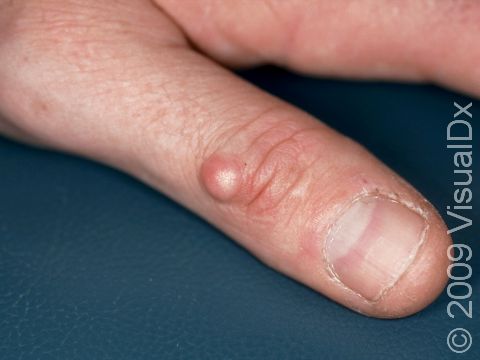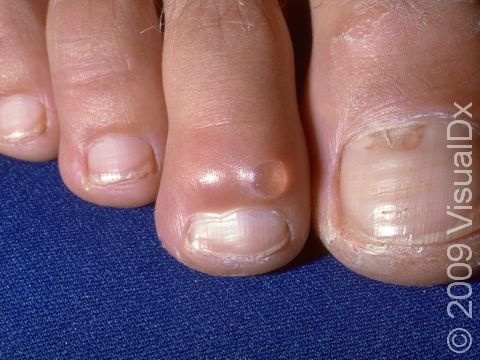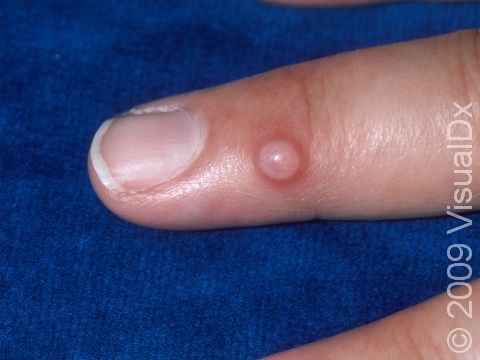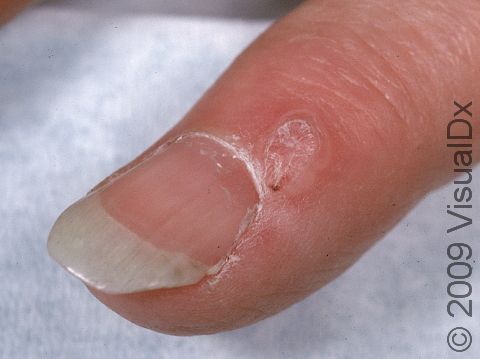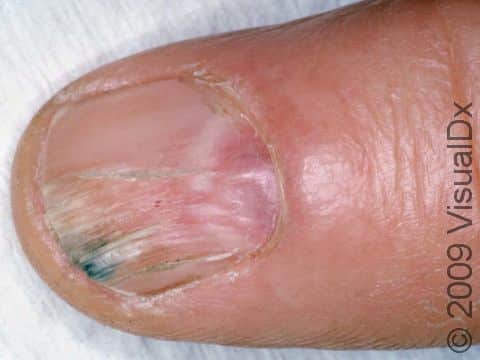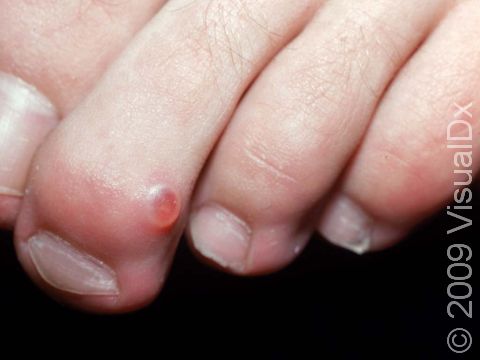Myxoid Cyst
A myxoid cyst, also known as a digital mucous cyst or pseudocyst, is a growth usually occurring on the finger or toe near a nail. These cysts are believed to form when the joint lining around the finger or toe joint degenerates. Myxoid cysts occur more frequently on the fingers than on the toes. They are believed to be associated with osteoarthritis, a degenerative joint disease.
Who's At Risk?
Myxoid cysts are most common in women and in older individuals.
Many people with osteoarthritis get myxoid cysts.
Signs & Symptoms
A myxoid cyst is a solitary, rounded, skin-colored or translucent papule (a small, solid bump) that may feel relatively firm or may feel more fluid-filled. The fluid inside a myxoid cyst is thick, sticky, and clear to yellowish in color.
The most common location for a myxoid cyst is the finger. They are usually found near the base of the nail, slightly off to one side. Occasionally, a myxoid cyst can occur beneath the nail or involve the base of the nail. When this happens, changes in the nail, such as grooves, depressions, or slight color changes, may be seen. Rarely, a myxoid cyst will occur on a fingertip.
Self-Care Guidelines
There is no self-care necessary for myxoid cysts.
Treatments
If the diagnosis is not certain, your medical professional may recommend further testing, such as an x-ray or ultrasound.
Some myxoid cysts will go away on their own, but they often come back. Several treatment options are available. The most common are:
- Drainage of the cyst.
- Injection into the cyst with a steroid.
If the above measures do not fully treat the myxoid cyst or it comes back, you may be referred to a nail specialist or hand surgeon for surgical removal.
Visit Urgency
Myxoid cysts are harmless, but seek treatment if you have a cyst that becomes cumbersome or painful, or if the appearance is bothersome to you.
Trusted Links
References
Bolognia J, Schaffer JV, Cerroni L. Dermatology. 4th ed. Philadelphia, PA: Elsevier; 2018.
James WD, Elston D, Treat JR, Rosenbach MA. Andrew’s Diseases of the Skin. 13th ed. Philadelphia, PA: Elsevier; 2019.
Kang S, Amagai M, Bruckner AL, et al. Fitzpatrick’s Dermatology. 9th ed. New York, NY: McGraw-Hill Education; 2019.
Last modified on September 19th, 2023 at 1:21 pm
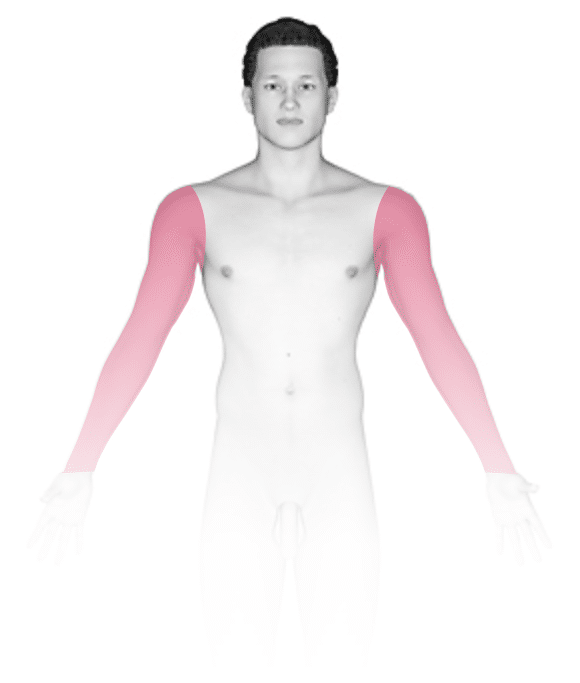
Not sure what to look for?
Try our new Rash and Skin Condition Finder
